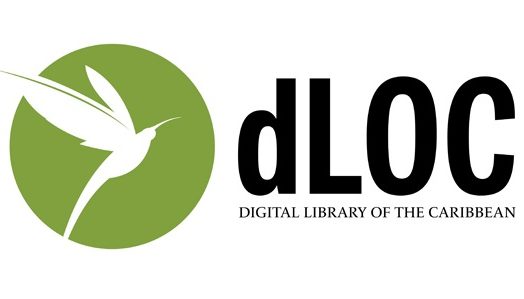Institute participant Dr. Keja Valens (Professor of English, Salem State University) looks back on her experience at the 2019 in-person Caribbean Digital Humanities Institute, and shares how she has incorporated digital humanities tools into her course “Roots of the Commonwealth: Caribbean Provisions from the British Empire to the 21st Century.”
When I proposed my project for the NEH Seminar, I could only hope that what I planned would be possible, that I would indeed learn the tools, make the connections, and develop the concepts that I needed to create and deliver a course on ground provisions that would culminate in the creation of a digital project. Overall, it worked!
I want to take this space to reflect on how it worked, what worked best, and what I think could be improved.
The selection of material, while a lot and for the first several weeks overwhelming to the students, succeeded in opening the colonial digital archive to the students.
The pairing of work with primary texts in digital archives and the reading of Roopika Risam’s Postcolonial Digital Humanities was fantastic. Risam’s text provided the overview of the field and the academic language to talk about it while the primary texts and archives allowed the students hands on experience with the materials and concepts that Risam discusses.
My ability to share with students that I had attended the seminar and the ways that the theoretical and conceptual discussions that I engaged in during the seminar could be brought into my class discussions were fantastic not only in deepening the what we did in class but also, and I think most importantly, in helping my students to understand themselves as part of a community of scholars.
The selection of assignments and activities that I designed worked relatively well: the activities and reflective writing assignments were fully successful; the blogging assignments were less successful.
The activities worked well in large part thanks to the NEH seminar both in person and online: I saw, in person, some of the courses and assignments that had been posted to DLoC from courses working with the digital Caribbean archive, especially the courses on the Panama canal. As I designed my course, I asked Leah Rosenberg for access to the assignments and after she quickly granted it, I was able to draw heavily on the work she and others had done, borrowing and adapting their assignments for my course. This success is a direct result of the
NEH seminar.
The “reflective writing on resistance,” which I designed as a regular assignment, allowed students a space to make their frustrations a part of what they were “supposed to be” doing and thus both let them move through those and also allowed me to see technical and conceptual sticking points.
The blogging on Risam’s book was less successful because of the blog format, which made conversation awkward. I’m not sure if the blog format is essentially awkward for that purpose or if I just don’t know how to use it well. Could the NEH seminar have been more helpful with this? Yes. I got excited about the WordPress format during the seminar, seeing some fantastic examples of courses and projects that used it. I think that folks even said that it’s possible to embed an Omeka project in a WordPress site. I had maintained a WordPress blog many years ago and I heard folks at the seminar say that WordPress, with some prior familiarity, was relatively simple to manipulate. For me, it was not, and I didn’t find a good way to follow up well with the introductory information I’d received or the people I’d seen use WordPress well. Of course, I could have figured all of that out on my own, but in the middle of a busy semester, I didn’t have time.
I think that the most important outcome of my participation in the NEH seminar was the possibility of sharing the work that came out of it through DLoC. I was able to present to my students a real community that they could understand as their interlocutors and where they could see their work being published. This meant that when they searched for material and reviewed other projects through DLoC, they did so with a profound interest and engagement, and as they completed their exhibits, they did so with a specific venue and audience in mind, and it was one in which they already felt invested and engaged and also one that they felt it was urgent to participate in with care and integrity. The greatest achievement, then, of the seminar, for me, is that it has helped me to open a path to engaging more students in the Digital Caribbean.

